"Node" refers to a running piece of client software that verifies all transactions in each block, keeping the network secure and the data accurate.
Ethereum Node Tracker Page
Etherscan's Ethereum Node Tracker Page shows statistics of all the nodes running on the Ethereum network. The statistics include the top 10 countries with the highest number of nodes, daily total nodes and nodes types by clients and OS.
Top 10 Countries
This section shows the top 10 countries with running nodes.
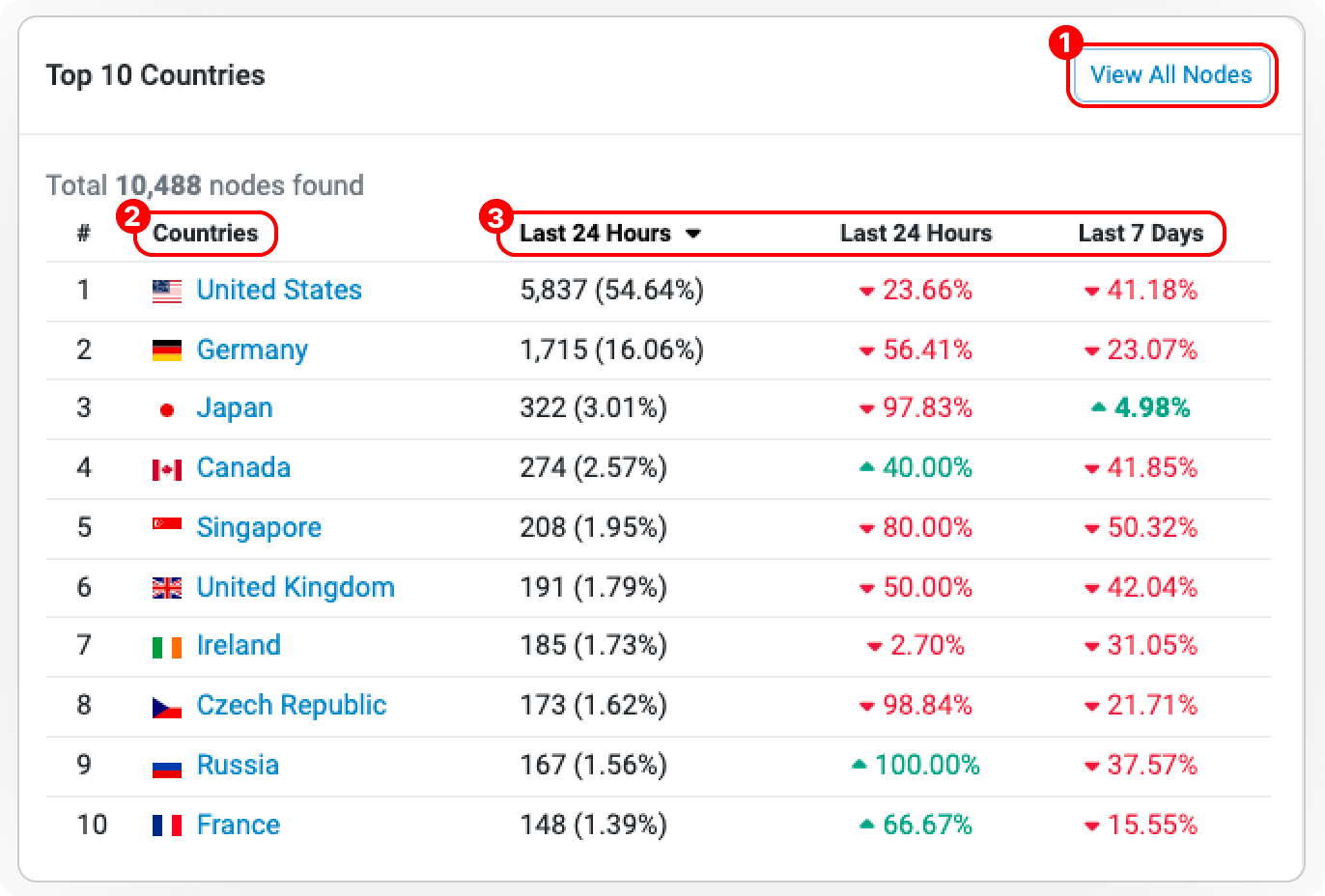
- View All Nodes : Takes you to a page with detailed view of nodes found.
- Countries : List of countries sorted by number of nodes filter.
- Filter : Shows the percentage change of nodes found in the top 10 countries.
Nodes
Shows the last 10,000 records of nodes found.
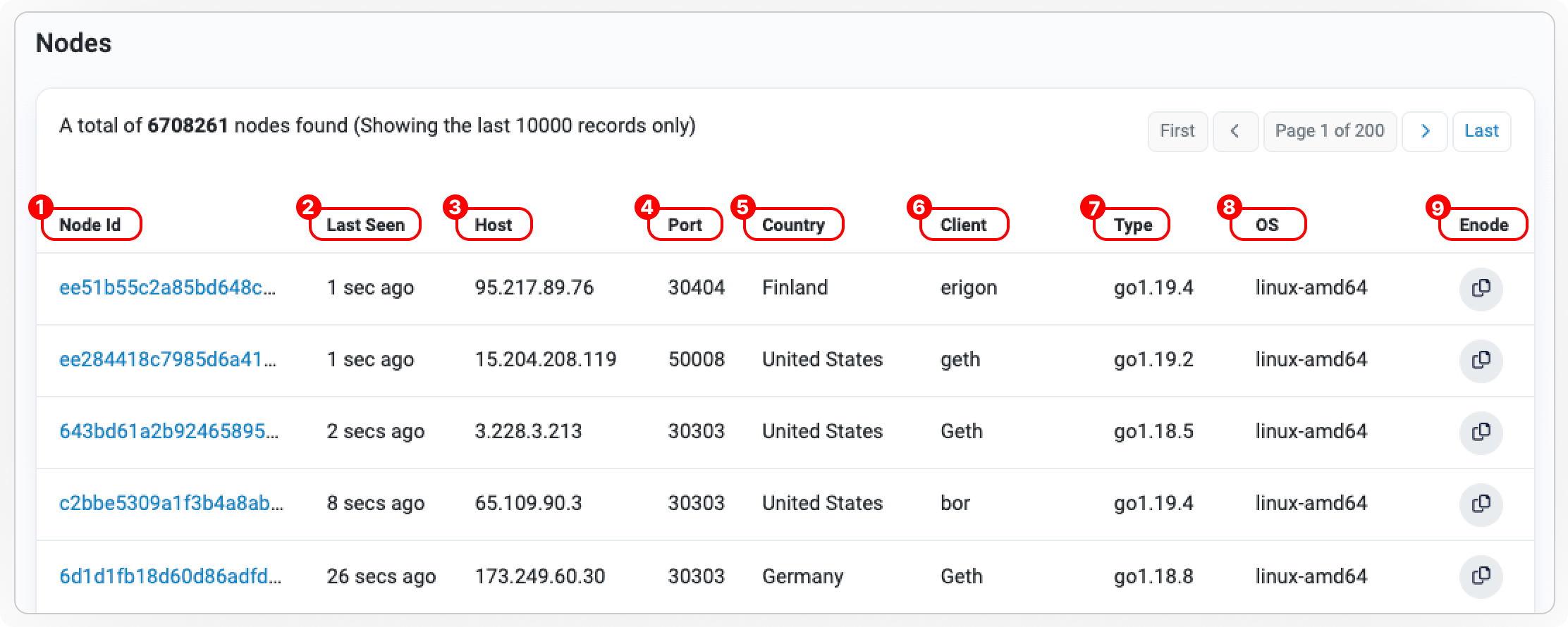
- Node ID : The secp256k1 public key corresponding to the node’s private key.
- Last Seen : The last time the node was seen by “sent and received” status message.
- Host : The public IP address of the machine that the node is running on.
- Port : The open port that the node is listening on for peer-communication.
- Country : The country where the node is located based on the public IP address.
- Client : The software implementation of Ethereum that is being run by the node.
- Type : The client type and version that is being run by the node.
- OS : The machine OS that the node is running on.
- Enode : A way to describe an Ethereum node in the form of a URI (Uniform Resource Identifier).
Node Stats
Shows a chart of running nodes on the Ethereum Mainnet.
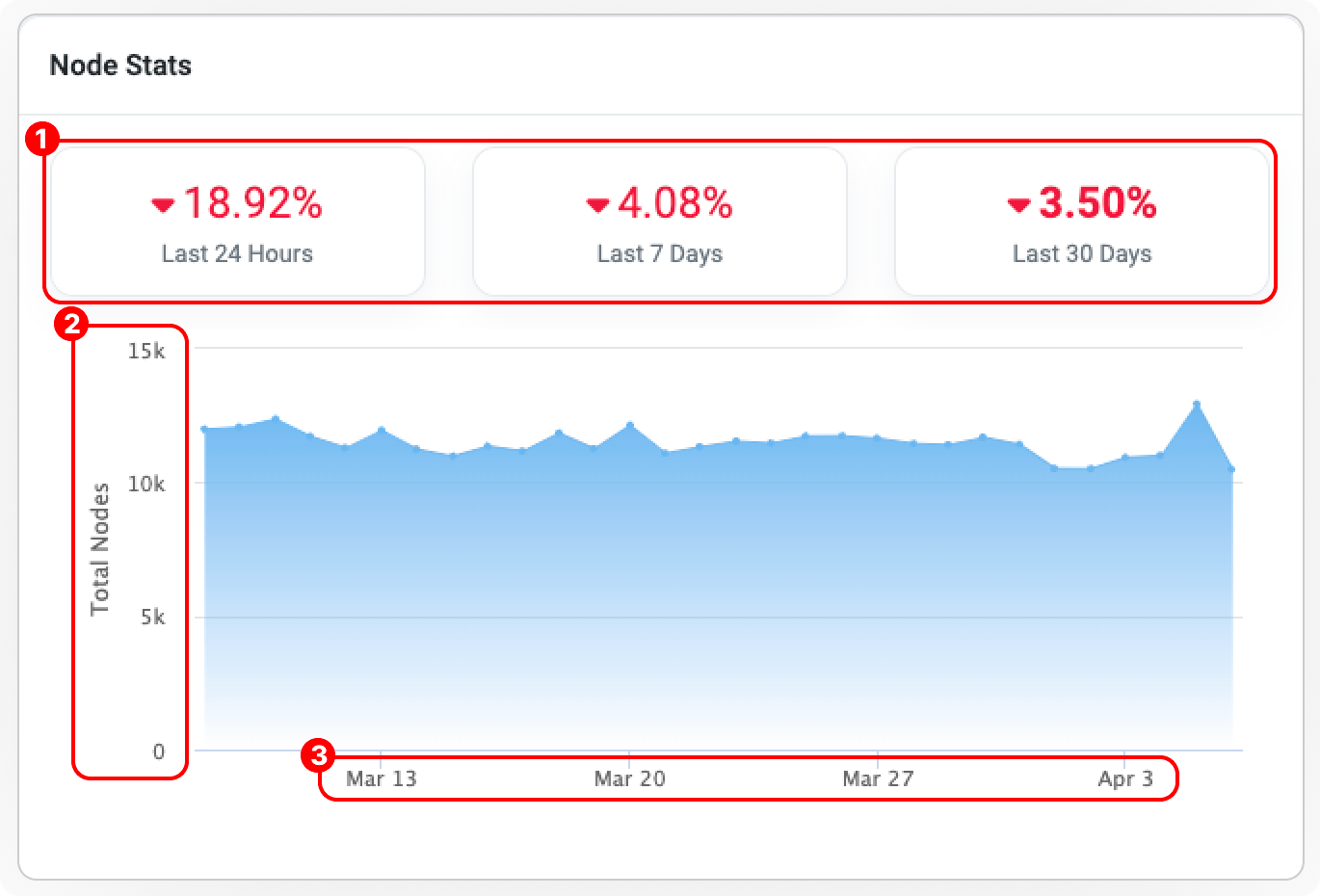
- Percentage Change : Shows the percentage change of the node count.
- Total Nodes : Number of nodes currently running on Ethereum Mainnet.
- Dates : Weekly timestamp of tracked nodes.
World Map
A world map illustration of the nodes found. Number of nodes in each country will appear upon hover.
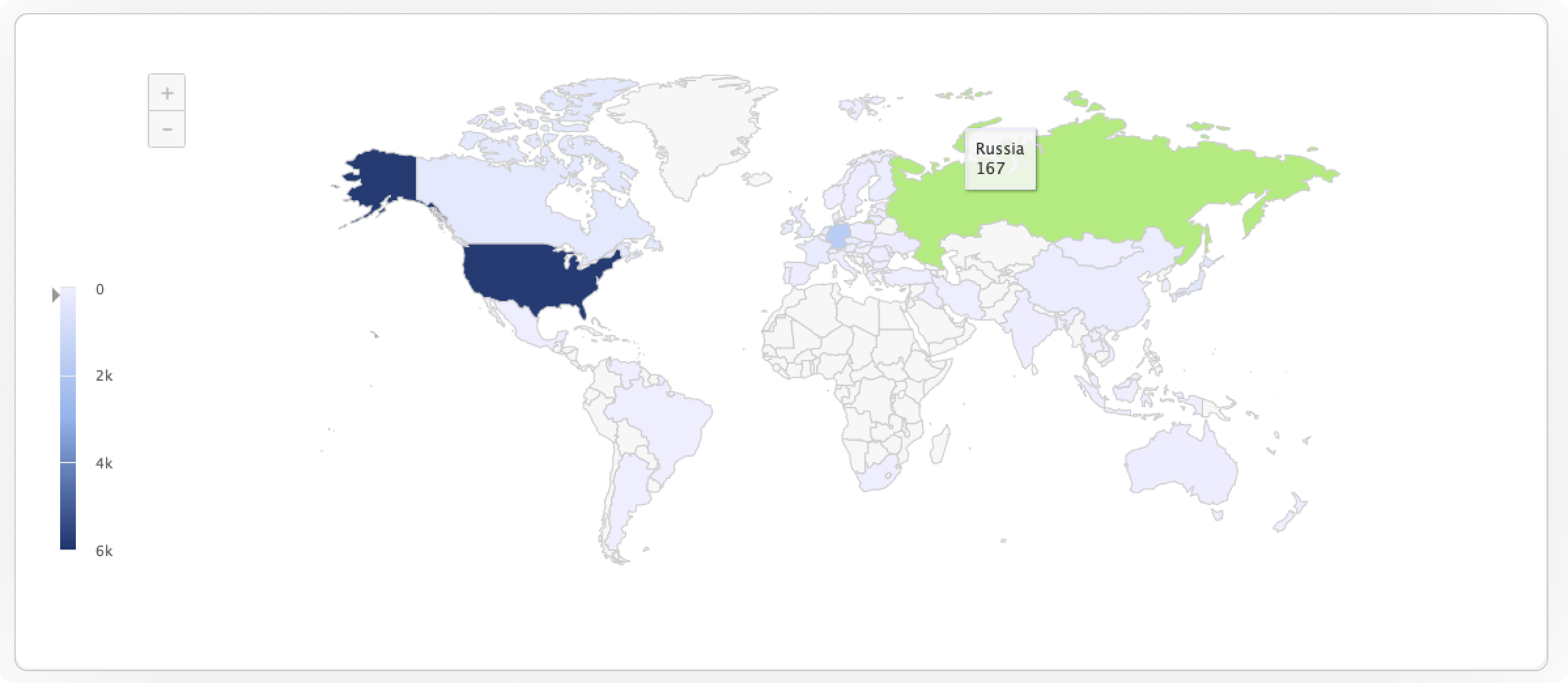
Client Pie Chart
Shows a comparison by client, client type and OS used.
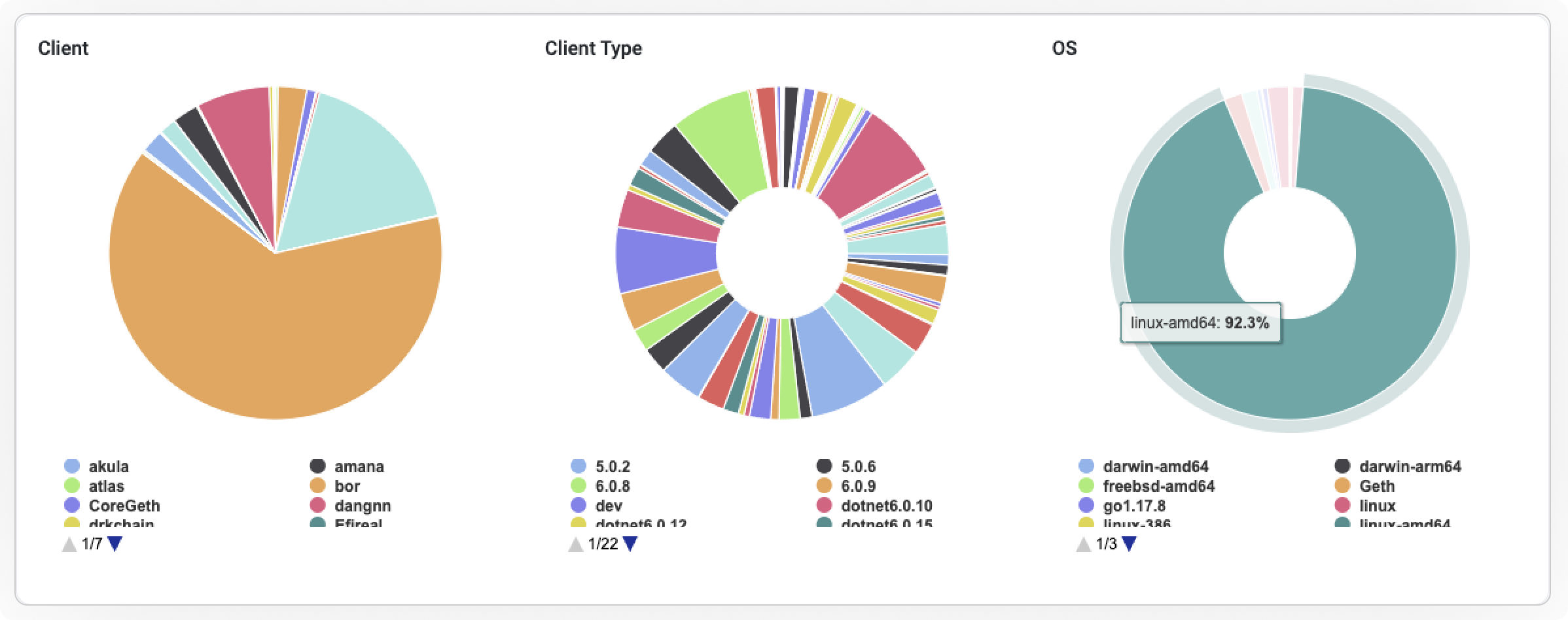
Running a node helps keep the network secure. If you would like to run your own node, you can refer to this article by Ethereum Foundation as a start.